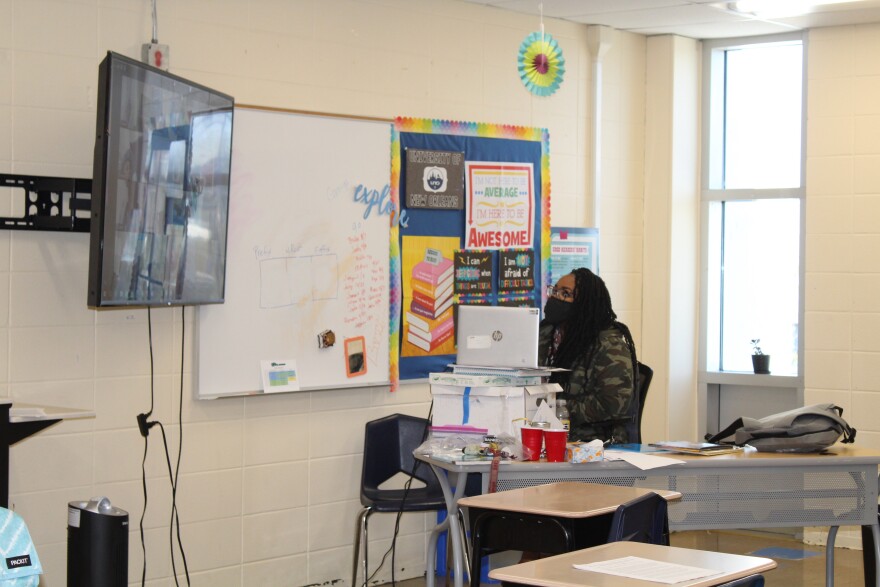If a student is learning at home, do school rules still apply? That question is at the core of new legislation passed in the Louisiana state house last week.
The Ka’Mauri Harrison Act, named for a Jefferson Parish fourth-grader, widens the appeal rights of students expelled during remote instruction and requires officials in all 69 school districts to review their discipline policies in light of virtual learning.
Most of the state’s PreK through 12th-grade students are still learning online, either part- or full-time.
Ka’Mauri Harrison, the act’s namesake, was recommended for expulsion after he moved a Daisy BB gun away from his younger brother and into the frame of his virtual classroom. School officials said the presence of the gun violated district rules prohibiting weapons on campus.
But Harrison’s family has argued that their home is not a part of the Jefferson Parish public school system. Ka’Mauri’s expulsion was later reduced to a six-day suspension. His family believes he shouldn’t have been punished at all.
To better understand some of the other ways virtual learning can infringe on student rights, Education Reporter Aubri Juhasz spoke with Elizabeth Laird. She’s a senior fellow with the Center for Democracy and Technology.
Interview Highlights
What are some of the biggest concerns you’ve seen related to student rights and virtual learning?
“When you think about privacy, there's obviously a component of legal compliance, and that includes both federal laws but also state laws. But what I really worry about with privacy is how do you protect the safety and well-being of children remotely in the same way that you would protect them in person?
“Should students have to have their cameras on? If they do, what if the student is maybe embarrassed about where they are living and its subjecting them to additional bullying? How can schools address that? … There are students who are experiencing homelessness. Maybe they're participating from a car or somewhere that they wouldn't want their classmates to know. It should be their choice about with whom they share that information.
“Around attendance, what does it mean to attend school right now and what are the repercussions if you’re not considered to have attended. Is it just logging on? Is it having your camera on? Is it saying something during class? Those are new questions and issues that the shift to remote learning is bringing about.”
How are schools across the country responding to these concerns?
“I think it's really varied. I've heard, ‘We're moving too quickly. We don't have time to think about privacy right now,’ all the way to schools being really deliberate and providing Zoom backgrounds, so students don't have to reveal what's going on behind them.
“I've also seen a number of cybersecurity attacks that even if you aren't thinking or prioritizing privacy before, you are now, because your district has been the recipient of one of these attacks. One of the consequences is that schools may literally be shut down and students may not be receiving instruction. Making sure you're keeping information private and secure is not just a legal or technocratic issue, but really does have a direct impact on students.”
If you were advising a school district on how to amend their policies, what would you look for?
“When it comes to remote learning I do think it’s helpful to acknowledge that it is different from in-person instruction and that all of the rules may not translate perfectly. Students that are participating in virtual learning are oftentimes doing so from their homes, their bedrooms. Which is obviously very different than if you are participating from a classroom.
“I would look at attendance. There's the story that made national news of the student in Detroit who was not logging into remote learning. She had expressed that she was struggling and was not just disciplined by the school, but was put in a youth prison. I think that's an example of a policy that may not be translating to remote learning. This is a traumatic situation for all of us, including students. We need to be supportive in this moment.
“With respect to discipline policies, if you're using video conferencing you know, thinking about how the policies that would have addressed what you could bring to school [in-person] means in a remote context. I do think it's really important to look at what policies are still appropriate as we've transitioned from in-person to remote learning.”






